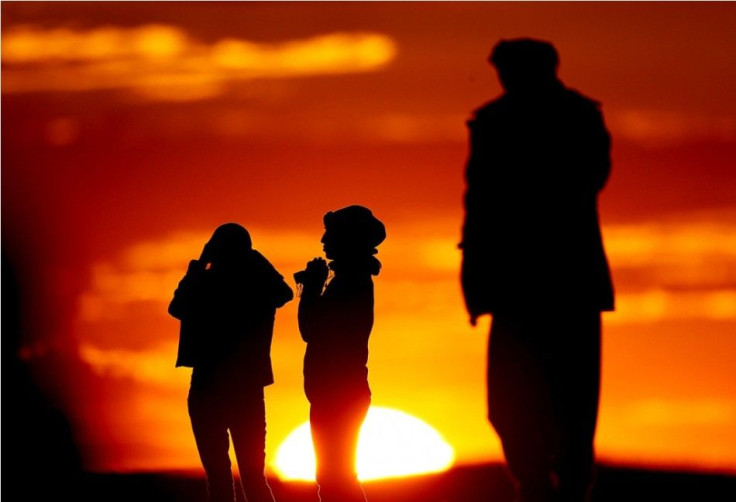Kobani Fight Against ISIS: Turkey Finally Sheds Anti-Kurds Stand And Allows Peshmerga Kurds Into Kobani

In a dramatic change of stand, Turkey has allowed Kurdish peshmerga forces from Northern Iraq to cross its territory to defend the fellow Kurds fighting the ISIS at the besieged Syrian border town of Kobani.
The Guardian reports that this sudden shift from Ankara's position came hours after the U.S. military dropped several tonnes of lethal weapons and medicines to the Kurd fighters. Turkey's changed position is expected to make a positive change for the anti-ISIS fight to stop it falling to the rebels.
Arms Airdropping
On Monday, the U.S forces, using three U.S. C-130 transport aircraft, had air dropped 27 bundles of consignments carrying weapons, ammunition, and medical supplies. "It was the quickest way to get the job done." President Obama's office notified.
Turkish president Recep Tayyip Erdogan had been opposing the arming of Kurd groups whom he considers as terrorists. The U.S. had been waiting for a positive change in Turkey's stand as it was diffident, despite 135 airstrikes near the town on Turkish border, Kobani can still fall to the ISIS rebels.
John Kerry Justifies
In Jakarata, U.S. Secretary of State John Kerry justified the airdropping of weapons and ammunition in Kobani. He said it would be "irresponsible" and "morally difficult" to avoid such a direct support to the "valiant fighters". Kerry told reporters that the US is aware of Turkey's concerns about supplying arms to the Kurds, who are linked to a Kurdish group that Ankara is opposing.
But, Kerry said the situation in Kobani was dire and replenishment resupplies were absolutely necessary in a "crisis moment", reports Daily Star.
Parleys in Indonesia
But Kerry said the U.S airdrops are temporary and Turkey has been asked to allow Kurdish fighters from Iraq to pass into Kobani. Kerry led the U.S. delegation to the inauguration of new Indonesian President Joko Widodo, who recently won the elections. In Jakarta, Kerry held meetings with senior officials from Australia, Brunei, Malaysia, and Singapore. The U.S. hopes that Indonesia, as the world's most populous Muslim-majority country with Muslim dominated neighbors like Malaysia and Brunei can play a significant role in combating Islamic radicalism and blunt the propaganda from the ISIS militants. The U.S. is also counting on these countries to cooperate in keeping extremists out of their territories, and crack down on terrorist financing.





















